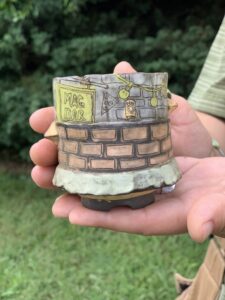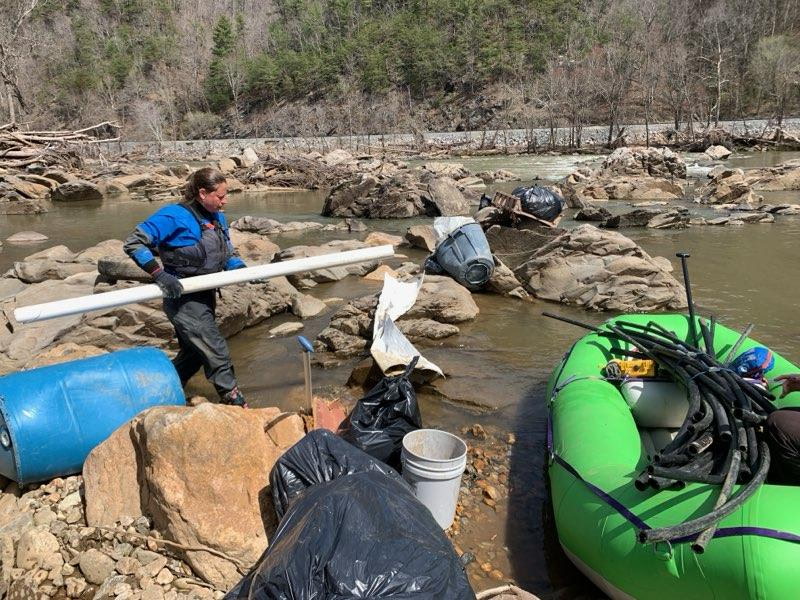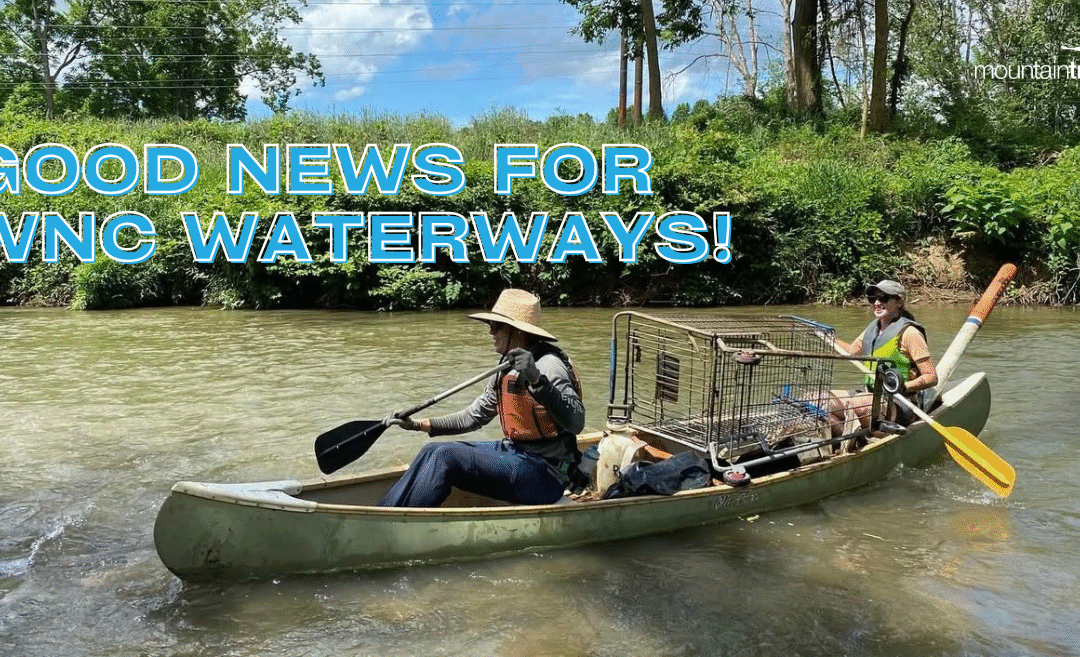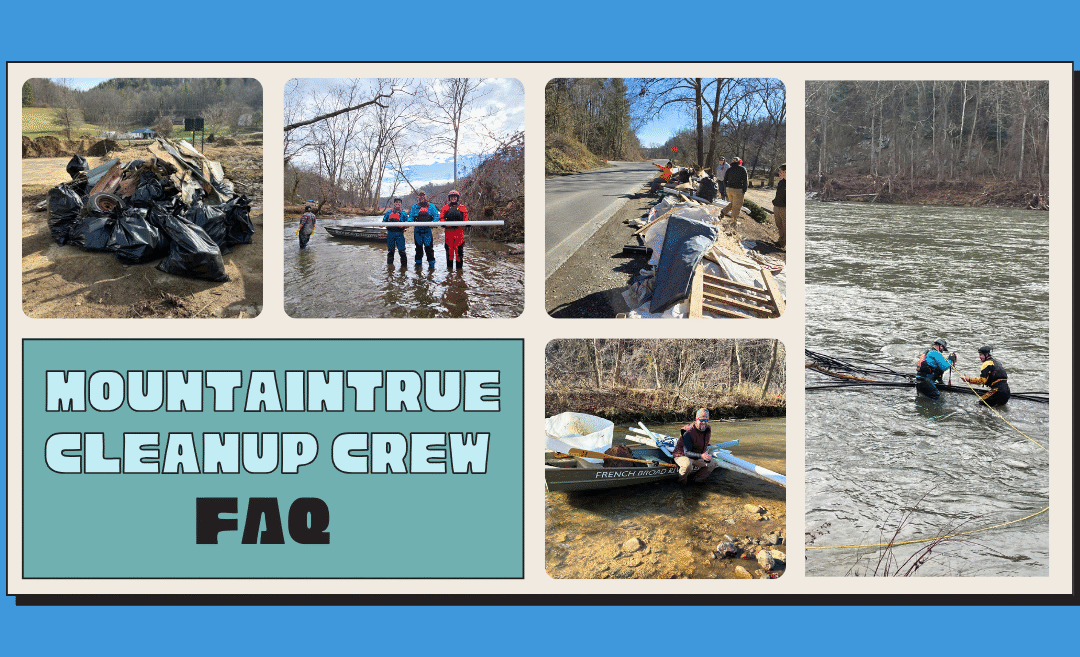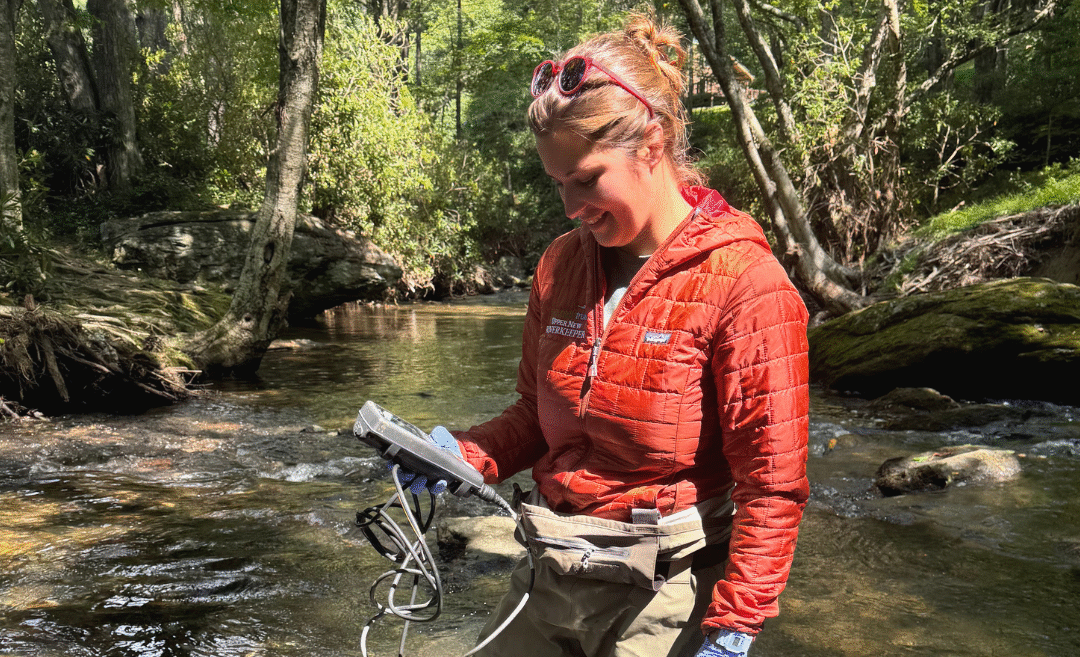
Press Release: MountainTrue Announces Hannah Woodburn as Upper New Riverkeeper
Press Release: MountainTrue Announces Hannah Woodburn as Upper New Riverkeeper
FOR RELEASE: SEPTEMBER 2, 2025
AUGUST 21, 2025
MountainTrue Names Hannah Woodburn as Inaugural Upper New Riverkeeper
The New role expands protections for vital mountain waterways in Watauga, Ashe, and Alleghany Counties.
Boone, NC — MountainTrue is proud to announce the appointment of Hannah Woodburn as the first Upper New Riverkeeper, a new full-time position dedicated to safeguarding the headwaters and tributaries of the New River in North Carolina’s High Country. This appointment expands MountainTrue’s Riverkeeper program to five and underscores the organization’s commitment to clean water in the Southern Blue Ridge Mountains.
“I am honored to serve as the Upper New Riverkeeper. As a North Carolinian, I feel a deep sense of responsibility to ensure that everyone has access to clean water and fishable, swimmable rivers, for generations to come,” says Hannah. “The New River watershed is beautiful, and I’m looking forward to getting to know the community better and building meaningful partnerships to help protect the river we know and love.”
Hannah holds a Master’s Degree in Biology from Appalachian State University, where she also earned her Bachelor’s Degree in Ecology, Evolution, and Environmental Science. She has been a member of MountainTrue’s Clean Water Team since 2020, and most recently served as the Watershed Coordinator for the High Country Watauga Riverkeeper program.
“Hannah brings deep local and scientific knowledge, a love for our community, and a fierce passion for clean water,” says Andy Hill, MountainTrue’s High Country Regional Director and Watauga Riverkeeper. “She’s been a vital part of our team since 2020, and her leadership as the inaugural Upper New Riverkeeper is exactly what this watershed needs.”
Meet Your Riverkeeper!
The public is invited to join MountainTrue and the Upper New Riverkeeper at two upcoming “meet and greet” events partnered with local businesses. These gatherings offer an opportunity to meet Hannah Woodburn, ask questions, and share any water quality concerns. Guests who sign up or visit the MountainTrue table will be entered in a prize raffle. We look forward to celebrating clean water together!
-
Thursday, September 11, 6-8 p.m. at New River Brewing Taproom & Brewery/Brewzer’s Bites in West Jefferson, NC
833 U.S. Hwy 221 Business, West Jefferson, NC 28694 -
Thursday, October 16, 6-8 p.m. at Speckled Trout Outfitters + Outfitters Tap Room in Boone, NC
140 Depot St #1, Boone, NC 28607
For more details, visit: mountaintrue.org/
About the Upper New Riverkeeper
As the new Upper New Riverkeeper, Hannah will patrol local waterways, respond to pollution complaints, and lead community-based water quality volunteer programs like Swim Guide, Volunteer Water Information Network (VWIN), and Trash Trout. In the wake of Hurricane Helene, Hannah will prioritize long-term resilience efforts such as advocating for dam removal, septic repair funding, riparian buffer protections, stream restoration, and stronger surface water standards. Hannah will work to improve water quality, monitor the ecological health of the river, and build strong community partnerships.
“We’re not alone in this work,” says Hannah. “We collaborate with local governments, farmers, faith communities, businesses, and other nonprofits to protect our shared waters. “Whether you’re a paddler, angler, farmer, or just someone who loves the river — this watershed belongs to all of us, and we need your voice and your help.”
The Upper New Riverkeeper jurisdiction includes 754 square miles and more than 2,000 stream miles in North Carolina, and encompasses the towns of Boone, Todd, West Jefferson, Jefferson, and Sparta. The watershed includes a dense network of headwater streams and two major tributaries—the North and South Forks of the New River—that converge and flow north into Virginia. While the watershed is renowned for its stunning headwater streams and natural beauty, it also faces significant challenges, including aging sewer infrastructure, aging septic systems, high levels of bacteria in certain areas, and a lack of oversight from state regulators. With growing development pressures in the watershed, the need for an active, on-the-ground watchdog has never been more urgent.
About MountainTrue
MountainTrue champions resilient forests, clean waters, and healthy communities in the Southern Blue Ridge. With a focus on science-based advocacy and grassroots engagement, we’re active in the Broad, French Broad, Green, Hiwassee, Little Tennessee, New, and Watauga River watersheds. MountainTrue is home to the Broad Riverkeeper, French Broad Riverkeeper, Green Riverkeeper, Watauga Riverkeeper — and now, the Upper New Riverkeeper. Learn more at mountaintrue.org.
About Waterkeeper Alliance
Waterkeeper Alliance is a global movement uniting more than 300 Waterkeeper Organizations and Affiliates worldwide, focusing citizen action on issues affecting our waterways, from pollution to climate change. Waterkeepers patrol and protect over 2.5 million square miles of rivers, lakes, and coastlines in the Americas, Europe, Australia, Asia, and Africa. For more information, please visit: waterkeeper.org
###


